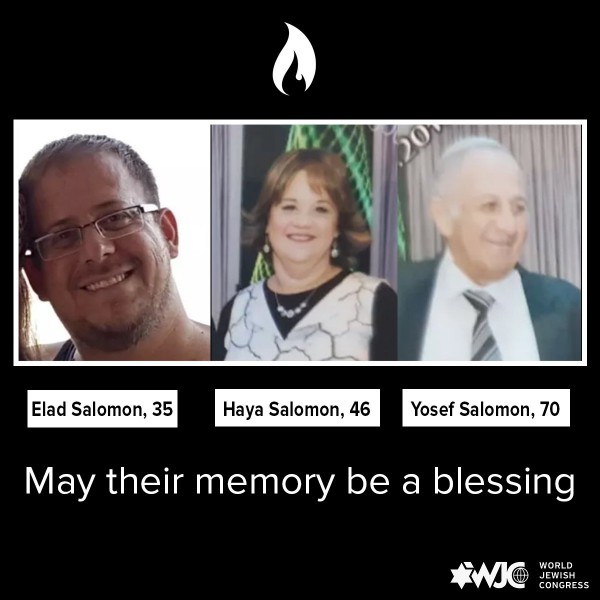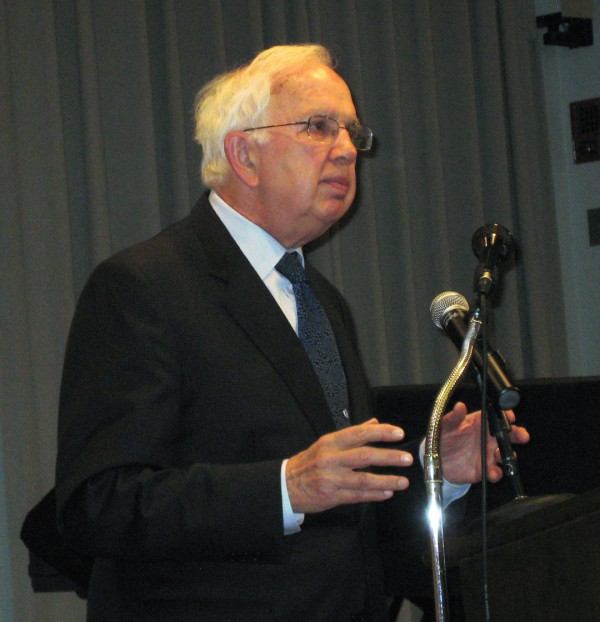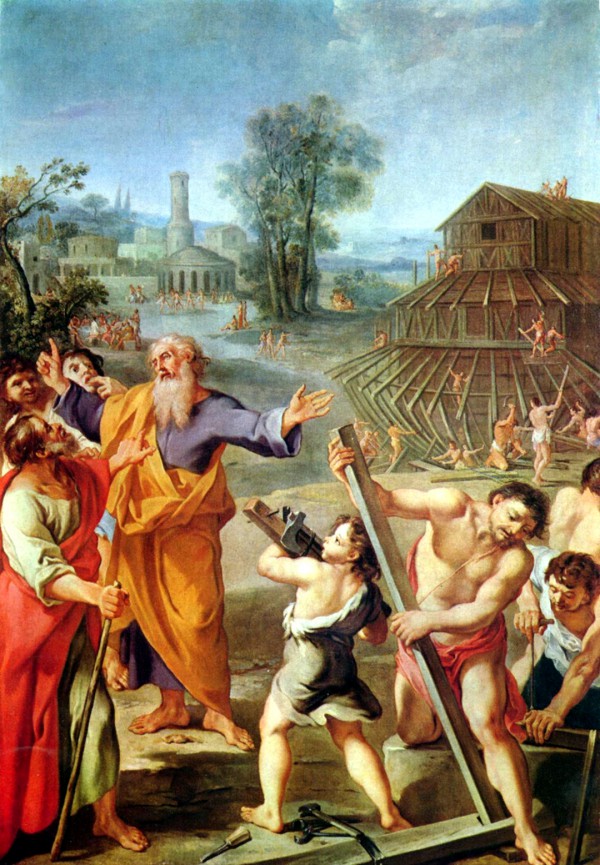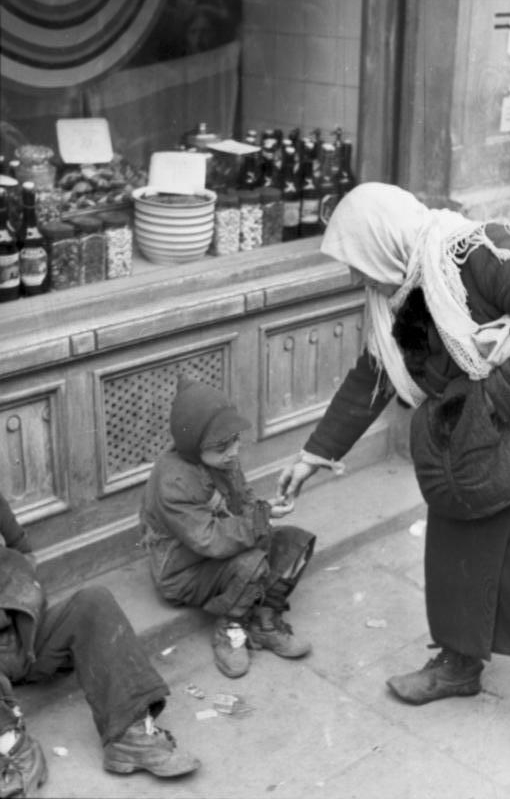“The Lord is close to the brokenhearted and saves those who are crushed in spirit.” (Psalm 34:18)
Here in Israel, we live our day-to-day lives against the background of almost daily terror attacks and emergency situations.
For several years, Israelis have faced an onslaught of stabbings, car rammings, stone hurlings, firebombings, and shootings, and now war. And a broader war is looming.
This wave of terror and war is fueled by a culture of incitement in Palestinian society and a revision of history that denies the Jewish People rights to the holiest site in the world, the Temple Mount.
Elsewhere in the Middle East and other regions, Believers in Yeshua are persecuted and martyred as a result of radical Islamic oppression.
How do we make sense of such senseless tragedies? If God is sovereign, why does He allow suffering? Why do bad things happen to good people?
The conservative Jewish rabbi Harold Kushner had to grapple with this question when he learned that his son had progeria, a progressive genetic disorder that causes children to age rapidly. His son would not live past his teens.
In response to suffering, he wrote the book When Bad Things Happen to Good People. Kushner concluded that God is not the immediate cause of tragedy and that asking questions such as “Why did this happen to me? What did I do to deserve this?” is pointless. Such questions, he believed, are unanswerable.
Kushner believed that the only meaning suffering has is the meaning that the sufferer gives it. And we need to give it meaning, he said, to find our way through it.
“Let me suggest that the bad things that happen to us in our lives do not have a meaning when they happen to us. They do not happen for any good reason which would cause us to accept them willingly. But we can give them a meaning. We can redeem these tragedies from senselessness by imposing meaning on them,” he wrote.
“The painful things that happen to us are not punishments for our misbehavior, nor are they in any way part of some grand design on God’s part. Because the tragedy is not God’s will, we need not feel hurt or betrayed by God when tragedy strikes. We can turn to Him for help in overcoming it, precisely because we can tell ourselves that God is as outraged by it as we are.”
The Jewish Approach to Tragedy
“Though He slay me, yet will I trust in Him; But I will argue my ways before Him.” (Job 13:15)
Of course, not everyone accepts Kushner’s conclusions.
It is not uncommon for Orthodox Jews, for instance, to equate suffering with the will of God. They point to the Book of Job and, in particular, the verse in which Job tells his wife, “Should we accept only good from God and not accept evil?” (Job 2:10)
In this sense, perhaps, Job sees his afflictions as an act of the Almighty and trusts Him fully.
On the other hand, the Jewish midrashic teaching (Genesis Rabba 22:4) suggests that the first murder in the Bible, the killing of Abel, came at the free will of Cain and not the will of God. In other words, when a person dies at the hands of a killer, it is the will of the murderer not of God.
God has granted humankind freedom of choice, and while sin “crouches at the door,” God allows each person to exercise his or her sovereign will.
Thus, tragedies are not the work of God but of those who carry out these horrendous acts.
It is unwise to equate these horrible actions with God’s will and assume that He is using them to punish us for some undesired acts.
The evil events that occur daily are not the will of a sovereign God, but the results of our defying God’s clear tenets and His moral laws.
In Genesis 6:5–6 we read how God’s heart was saddened by the iniquity of mankind in the time of Noah. One might wonder if the same holds true today.
We need not place the blame on God when bad things happen to good people but know that God Himself suffers from these occurrences.
As the prophet Isaiah said, “In all their troubles, He was troubled.” (63:9)
We might ask ourselves when bad things happen not “Where was God?” but “Where was man?” Why are good people not stopping those who are evil from carrying out their destructive acts?
The Talmud (Berachat 5a) states that when tragedy strikes, we must examine ourselves and take stock of our deeds and our obedience to God’s commandments.
Rabbi Ari Enkin, the rabbinical director of United with Israel, stresses that people need to face evil with right action. When the terrorist organization Hamas claimed responsibility for the killing of three Yeshiva (Jewish seminary) students, he wrote, “Hamas is an organization that spews darkness. Let us respond with light. Lots of light. Light that is contagious and addictive.” (United with Israel)
His is a spiritual strategy. Instead of returning evil with evil, he suggests:
“Fill every day with meaning and significance. We must make a difference in the world. Do an act of kindness. Help another person. Make a donation to a cause that was close to the hearts of the victims.”
Enkin believes a proper response to the inhumanity of Hamas is a friendly smile and greater devotion to the commandments.
Aron Moss, rabbi of the Nefesh Community in Sydney, Australia also emphasizes that our response to people’s suffering must be to channel our energies into helpful efforts.
“Take your righteous anger and turn it into a force for doing good,” he writes. Moss encourages us to “combat the pain in the world with goodness.” (Chabad)
Responding to the murder of a boy in Borough Park in New York, Rabbi Tzvi Freeman noted that we must not be satisfied to attach a meaning to suffering, but be outraged and bring our protests to God.
If we are not outraged, but complacent and satisfied to stamp someone’s suffering with a pat answer, we will not work toward healing the world from evil.
A Jewish Response to Tragedy
Holocaust survivor Bart Stern told the story of a man robbed of his daily ration in Auschwitz. Because of the starvation conditions under which they were living, this was tantamount to a death sentence. In response, Bart, who was also starving, gave the man some of his rations.
After the Holocaust, he moved to Los Angeles where he regularly invited young people on the street to his home for a Shabbat dinner on Friday night. His suffering in Auschwitz didn’t make him bitter but better. (Aish)
Another stunning response to tragedy is exemplified in the life of Dr. Rahamim Melamed-Cohen, a pioneer in special education in Israel. He was diagnosed with ALS (Lou Gehrig Disease) and told he had only 3 to 5 years to live. Although he was completely paralyzed and only had the use of his eyes, through the aid of special glasses he has been able to write over 12 books, create works of art, and communicate with people all over the world.
“There really is no place for self-pity,” he says. “Don’t despair. Be optimistic and work on joy in your heart. No matter what you’re lacking think of what’s possible to do in your present situation. These are the most beautiful years of my life.” (Aish)
Tragedy Is Real
“Man, born of woman, lives but a few days, and full of trouble.” (Job 14:1)
The Bible acknowledges the reality of tragedy, pain, and suffering. Yeshua (Jesus) said, “You will have suffering in this world.” (John 16:33)
Suffering is no illusion. It is real and it is caused by sin.
Although the world was without tragedy and suffering when it was created, since the Fall of man (Genesis 3) until today, every person experiences personal tragedy, either natural or man-made. Sometimes those tragedies are sickness and disease, which were also brought into the world through sin.
Suffering also occurs in natural events such as earthquakes, tornadoes, and tsunamis. Sin brought this kind of suffering into the world, too, and even nature is longing to be redeemed.
“We know that the whole creation has been groaning as in the pains of childbirth right up to the present time.” (Romans 8:22)
Sometimes tragedies are caused by human action such as acts of terrorism. Yet, we must realize that terrorism is also a manifestation of sin. Though we may at times prevent a sickness, cure a disease, and silence a terrorist, sin will only be eradicated after the return of Yeshua. (see Revelation 20:11–15)
Until that day, the world will grow progressively worse, with an increase in sin caused by our own selfishness, arrogance, and hatred.
And though God is sovereign, He gave us free will so that we can choose to love or not to love. Having given us that choice, He will not rescind it. So, while the love of many grows ever colder, we can choose for the love in our own hearts to grow ever warmer.
“For the creation waits in eager expectation for the children of God to be revealed.” (Romans 8:19)
God’s Refining Process
“If any of you lacks wisdom, he should ask God, who gives generously to all without finding fault, and it will be given to him.” (James 1:5)
Believers are not exempt from suffering. Many of us may face sickness, financial hardships, or struggles with past issues that we failed to resolve.
Even so, we can be confident that God is at work in our lives, and He can even use our suffering to accomplish something good.
“And we know that in all things God works for the good of those who love Him, who have been called according to His purpose.” (Romans 8:28)
It isn’t that He necessarily removes us to safety (though at times He may), but that as we draw nearer to Him in our suffering, we experience His Presence, protection, and guidance more.
“He will cover you with His feathers, and under His wings you will find
refuge; His faithfulness will be your shield and rampart.” (Psalm 91:4)
Whatever is happening in our lives, we must remember that God is sovereign and He may allow suffering to transform us into the image of His son. (Charisma)
The Believers’ Response to Tragedy
Believers in Yeshua need not fall into desperation when tragedy befalls them.
Rick Warren, founder of Saddleback church, presents the following advice for dealing with grief and tragedy:
1. Release the grief.
It’s only human to feel grief when we lose something. It’s more than okay to grieve, but do bring it to Adonai. Matthew 5:4 says, “Blessed are those who mourn, for they shall be comforted.”2. Receive from others.
Do not try to go through grief by yourself. It’s a mistake to isolate yourself from others. As Believers, we should be there for one another. Galatians 6:2 says, “Carry each other’s burdens. … By helping each other with your troubles, you obey the Law of Messiah.”
3. Refuse to be bitter.
Choose joy and happiness. Accept what cannot be changed and focus on what is possible. (Ephesians 4:3)
4. Remember what is important.
Concentrate on what really matters. While it is possible to lose everything you have, you can never lose your relationship with God. (1 Timothy 6:6–7)
5. Rely on Messiah
Believers are not alone and without hope. We can turn to the Messiah. Remember that He is our rock, our hiding place. Even in the darkest hours of our lives, we can rely on Him. Trust Him for direction.
 Yeshua warned His followers that in this world we would have tribulation. Nevertheless, we have hope that we can overcome it through the Messiah who has overcome the world.
Yeshua warned His followers that in this world we would have tribulation. Nevertheless, we have hope that we can overcome it through the Messiah who has overcome the world.
“I have told you these things, so that in Me you may have peace. In this world you will have trouble. But take heart! I have overcome the world.” (John 16:33)
What does it mean to us that Yeshua has overcome the world? As one commentator writes, Yeshua is saying,
“I have overcome the world, and I will come and put My overcoming Spirit [Ruach HaKodesh] into your weakness, and fill you with My own victorious life, and make your hands strong to war and your fingers to fight; and be in you the conquering and omnipotent Power.” (MacLaren’s Expositions: John 16:33)
When the Ruach abides in us, we have access to everything that Yeshua has. Therefore, instead of living in daily fear and anxiety, we can place our lives in His hands and partner with His Ruach; we can experience a Divine shalom, a peace that unites us instead of a worldly strife that divides us.



















